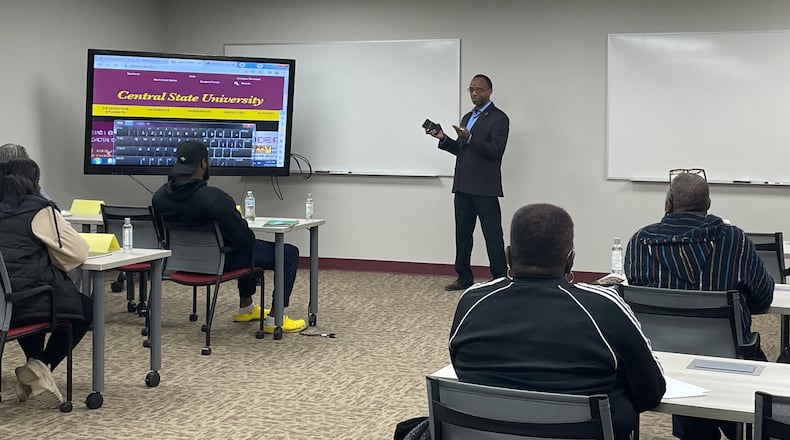Community health workers provide services to help communities manage health and wellness as part of a multidisciplinary health care team. They are trained advocates in communities where they are connected by culture, language or residence, CareSource said. Additionally, they help residents in their communities gain access to health and community resources through education, outreach, home visits, mentoring and referrals.
“Ohio demonstrates a need for a pool of diverse healthcare workers to help address various health disparities within minority populations,” said Jack Thomas, Central State University president. “Our goal for this program is to provide a reliable pipeline of trained candidates for career opportunities within CareSource and the healthcare and Human Services field in general, and to have candidates complete the instruction and programming that will lead to health-related certifications.”
Central State had more than 50 applicants to the program in the span three days, said Stephen Washington, Central State’s director of community engagement and business partnerships. They capped off the class at around 30 participants because of the space that was available.
“I figured this would be a good opportunity for opening new pathways and being able to see what college life would be like, as well,” said Taylor Prince, a student participating in the community health worker program. The program also engaged with Prince’s interest in health care, particularly after having family members with past health issues that required care.
“I’ve always had an interest in helping with elderly people who are more at risk with certain issues,” Prince said.
The program lasts for 12 weeks. It is compliant with the state of Ohio requirements for contact hours in order to obtain a community health work license from the state of Ohio Nursing Board, said Washington. Once students complete the training and obtain a certificate from Central State, they can go on to apply for a license from the state.
“This is the initial cohort, so this will be the first class,” Washington said.
Central State hopes to continue offering these health worker training courses in future. Central State also offers a GED wraparound service that can be tied into this program.
“Community health workers are in great demand and play a critical role in preventative medicine,” Washington said. “CareSource had great demand for community health workers as employees.
One of the reasons that prompted CareSource, a Dayton-based health insurance company, to support this proposal was a need for community health workers for their company. The health care workforce shortage prompted a lack of applicants for health worker roles CareSource was seeking to fill.
“Back last summer of 2022, we started to really see the health worker shortage present itself in the managed care space,” Davis said. “We were posting positions and seeing zero applicants across the gamut of positions.”
CareSource was struggling to fill community health worker positions they had open when they connected with Central State. CareSource previously partnered with Central State on distributing COVID-19 vaccinations.
“The community trusted that West Dayton location,” Davis said about Central State. “We had much success in vaccinating members of the West Dayton community at that location.”
CareSource found community health workers could reach more individuals in the areas where they lived and worked. The goal is for those health workers to help improve health outcomes.
“There’s an immediate disparity in lifespan,” Davis said. “We hope this infusion of community health workers who are coming from this community and returning to this community will start to impact these key outcomes that we look at and study and have not been able to develop external solutions. Rather, these individuals are going back to communities and building internal solutions to begin to turn the tide.”
About the Author



